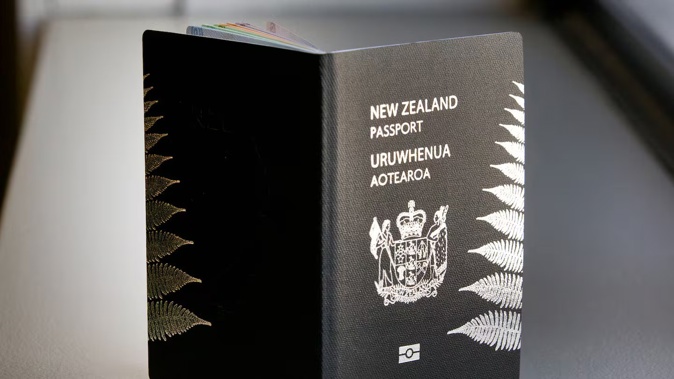
For decades, passports have been our main form of identification when travelling between countries.
But within only a few years, physical passports could become a thing of the past, moving onto our phones alongside our boarding passes.
It’s one proposal by the International Civil Aviation Organisation, the United Nations body that oversees airline policy, in recent weeks as a way of revolutionising the travel process for the digital age.
Instead of checking in for a flight, travellers would receive a “journey pass” on their phones that automatically updates when details change, and people would be able to use their faces to pass through security gates - with airlines being alerted when people arrive at the airport for a flight.
Speaking to Lorna Riley on the NZ Herald‘s travel podcast Trip Notes, Air New Zealand’s chief transformation and alliances officer Mike Williams said a lot of those proposed changes are already here.
“Different airports around the world have moved at different speeds on this, but already many ports that we fly to, there’s facial recognition for boarding.
“It’s a much nicer customer experience. It’s faster. I think it’s easier as well, you know, especially if you’ve got kids who you’re travelling with or elderly parents or things like this. You don’t need to make sure that you’ve got every passport and every boarding pass open at the photo page and things.”
It’s not just the airport experience where technology is evolving.
Williams said artificial intelligence is set to be a major disruptor in the travel industry, particularly when it comes to planning holidays.
“I went to Mangawhai recently, just north of Auckland and said, ‘look, I’m gonna be there for three days, I’m going with the kids and my wife, and we are kind of keen on doing some hiking or some slightly adventurous thing. What could we do?’
“And it gave a three-day itinerary. Basically morning, afternoon, evening, do this. I did it basically, exactly as it was said, and it was perfect.
" Every time we travel, especially overseas, there’s the amount of time that we spend planning, and then there’s the amount of time that we spend experiencing and enjoying, and I think we’ll decrease the amount of time that we need to put into the logistics."
Don’t forget you can save a digital copy of your policy documents on your phone for easy access whenever you may need them.
Innovation is also evident with the planes themselves. Eco-friendly designs have been pitched over the years to reduce the impact on the environment, including new fuselage shapes and different types of fuel like hydrogen.
Williams said Air New Zealand has been advocating strongly in that area, but it takes decades of development to get these changes right.
What will happen sooner, though, is changes to the interior. Williams said Air New Zealand’s SkyNests are due to be installed next year.
In terms of other designs - such as double-decker seats - Williams said he likes the fact people are testing and experimenting different ideas.
However...
" I don’t think that’s something that Air New Zealand will be pushing."
Listen to the full episode for more on changes in the air travel industry, and how Air New Zealand is adapting.
Trip Notes is an NZ Herald podcast hosted by Lorna Riley, a keen travel writer and enthusiast and host of Coast Days. New episodes are available every Tuesday.
You can follow the podcast at iHeartRadio, Apple Podcasts, Spotify, or wherever you get your podcasts.
Take your Radio, Podcasts and Music with you









